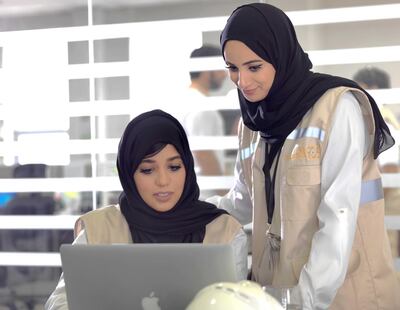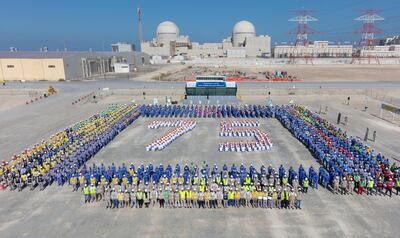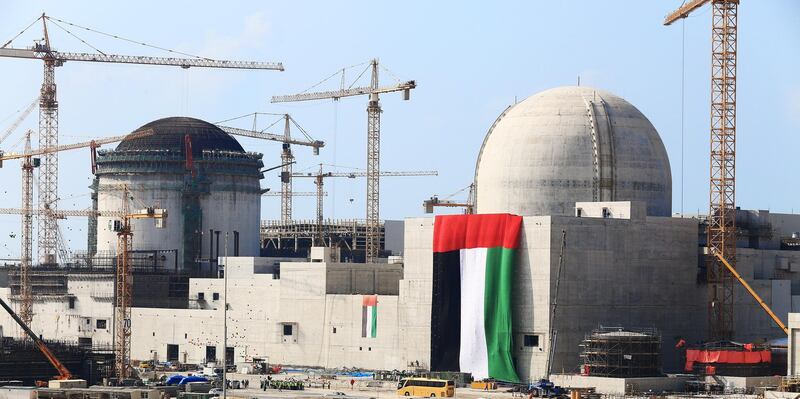Eleven years ago, the first nuclear power plant in the Arab world was a strip of sandy beach. It took a decade of construction, at least $25 billion, constant scrutiny of safety standards and monitoring the work of 18,000 people – technicians and engineers from among other countries, the UAE, South Korea and the US – to transform a coastal location into a resource that is today a game-changer for the country's energy needs. Now, an operating licence has been issued for the first reactor at Barakah.
This is momentous as it is the final step in a long, intricate process of the atomic power plant starting, with safety concerns being central to its operations and long-term future.
When all four nuclear reactors housed in the four identical domes of the Barakah Nuclear Power Plant start working, it will take care of a quarter of the UAE’s electricity needs.
This will transform the energy future of the country, make the UAE self-reliant and alter the course of its future.
It is not premature to say that the Barakah plant, less than a three-hour drive west of Abu Dhabi, is already a vital national asset. Today, 98 per cent of UAE’s energy comes from gas-fired stations. It is in the interest of the country’s future energy security that all eyes are now on the power plant.


The role of nuclear power cannot be understated. It has a crucial role in reducing gas-fired power generation to 38 per cent by 2050, along with renewable energy from solar and some clean coal.
Barakah then is a symbol of the UAE’s commitment to self-reliance. The power plant shows how serious the country is towards diversification of energy sources, of moving towards cleaner energy resources.
After more than a decade in the making, the UAE is set to overhaul its clean energy targets. The country plans to spend around Dh600 billion by 2050 to meet clean energy requirements and produce its own clean nuclear fuel. The value of such an asset on home turf is immense.
Sheikh Mohamed bin Zayed, Crown Prince of Abu Dhabi and Deputy Supreme Commander of the Armed Forces, said in a tweet, “As we prepare for the next 50 years to safeguard our needs, our biggest strength is national talent”.
There are aspects to Barakah that come second to what it signals for the country’s energy needs but it bears mentioning that while its workforce is an impressive 60 per cent Emirati, one fourth of those employees are women, which is the highest for any nuclear power company in the world.
Generations to come will look back on 2020 in the UAE as the year when the country fired up its first nuclear power station and set the country on a new course of clean consumption. Unlike fossil fuels, nuclear power does not release carbon dioxide, which contributes to climate change. The CO2 savings for Barakah have been calculated at 21 million tonnes a year.
The benefit to the environment doesn’t stop there. One pellet of uranium, the element used in nuclear power, is equal to a tonne of coal or 471 litres of oil and produces enough electricity for a single Emirati family for four months.
This will undoubtedly change how people in the UAE live and how they view their country’s energy output. Indeed, Barakah is inextricable linked to national pride and a feeling of triumph among residents and citizens as the country marches on in its journey towards the next 50 years.





